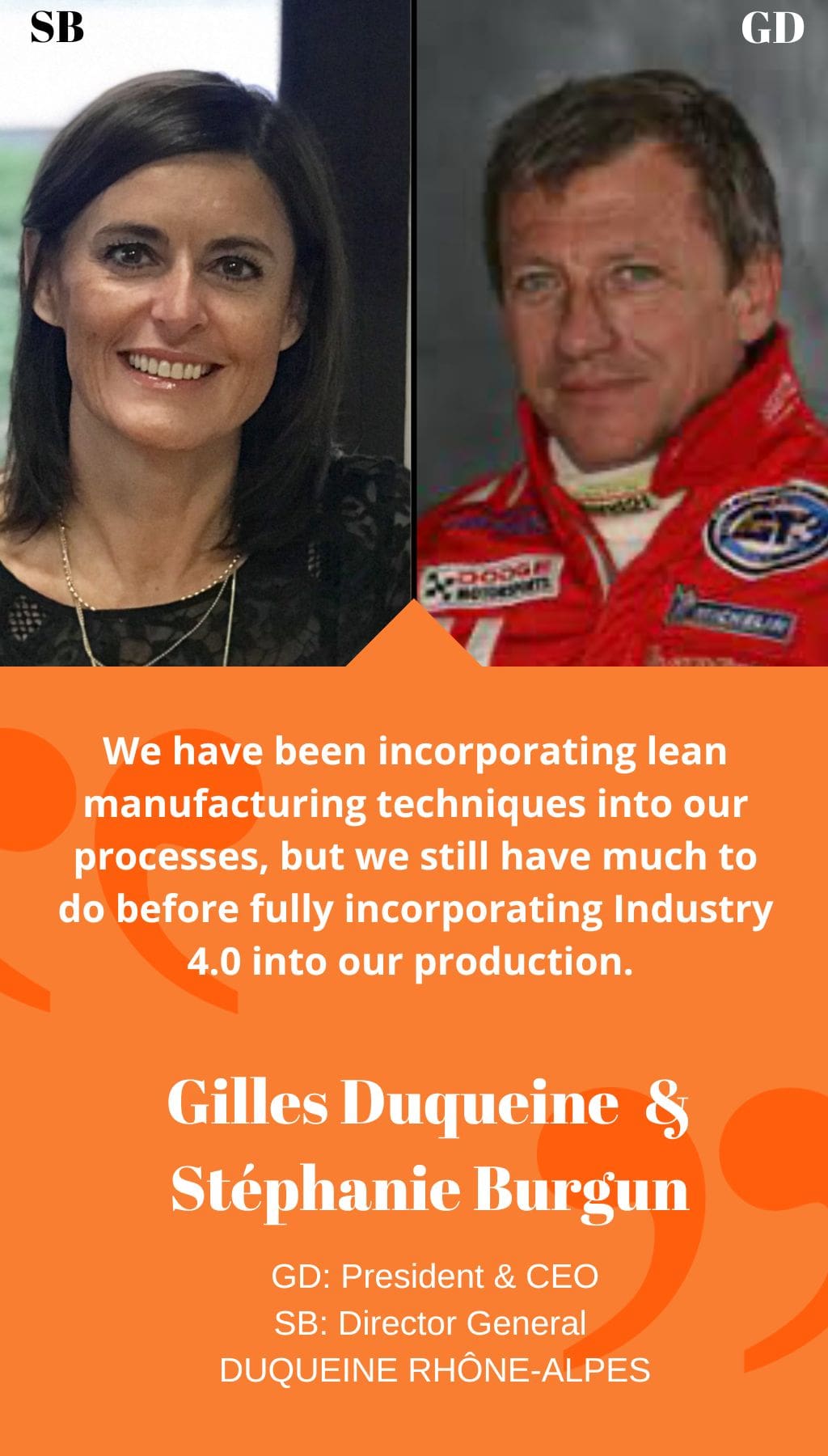
- France | 14 April 2018

Can you provide a brief introduction to Duqueine and its offerings to the aerospace industry in the Auvergne-Rhône-Alpes region?
The Duqueine Group was established in 1982 and has grown to have a turnover of €85 million, with over 800 employees and locations in Auvergne-Rhône-Alpes, Nantes, Romania, and Mexico. Our specialty is in the development and production of composite parts, with approximately 80-90% of our revenue coming from the aerospace industry. Our clientele includes major players such as Airbus and Safran.
How is Duqueine incorporating Industry 4.0 into its processes?
We have been incorporating lean manufacturing techniques into our processes, but we still have much to do before fully incorporating Industry 4.0 into our production. We are committed to this goal and have employed a full-time staff member to focus solely on this area. As the composite materials market is relatively new compared to the metallic material market, there is still a gap in industrialization and automation.
With the aerospace industry shifting towards smaller, lighter aircraft and the use of composite materials increasing, what are some composite parts that Duqueine is producing for aerospace applications?
Currently, we are focused on developing fuselage frames using composite materials. This is a significant change as fuselage frames for aircraft have been made from metal for over a century. We have been working hard to create high-quality, mechanically-resistant parts from composite materials, and have been assisting Airbus with the design changes and manufacturing logistics required for the switch from metallic materials to composites.
How does the use of composite materials compare to metal materials in terms of environmental sustainability?
Corporate social responsibility is a top priority for us, and we have a dedicated department working on our strategy. One challenge we face is that the raw materials we use cannot currently be recycled, and we are working with our suppliers to find a solution. Additionally, while composite materials are better for the environment in the short term due to their lighter weight, which results in less fuel consumption and lower CO2 emissions, there is a need to ensure that they are disposed of in an environmentally responsible and sustainable manner in the future.
What is Duqueine’s strategy for the next 3-5 years?
Our main strategy is to increase turnover by expanding and improving our product ranges. We are focused on developing more complete composite solutions to replace multiple metallic parts with a single composite part, reducing production costs and weight within the aircraft. We aim to diversify our customer base, including working with Boeing or Bombardier, while developing our relationship with Airbus. We also plan to expand our Romanian and Mexican plants to lower costs while establishing a more stable supply chain for raw materials. Finally, we are focusing on external growth and reviewing companies for potential acquisitions, including those outside of the aerospace industry such as the premium automotive market.














